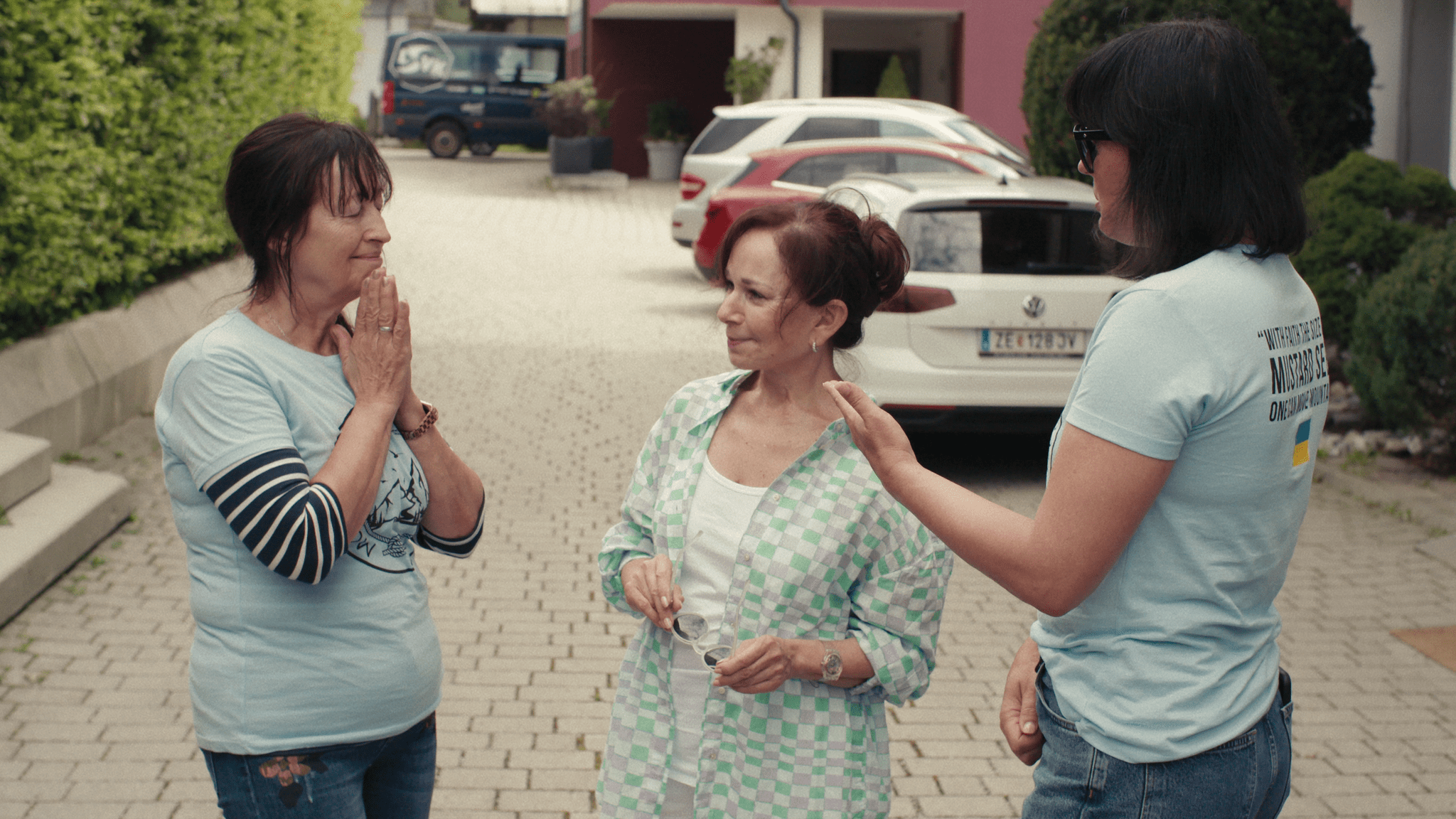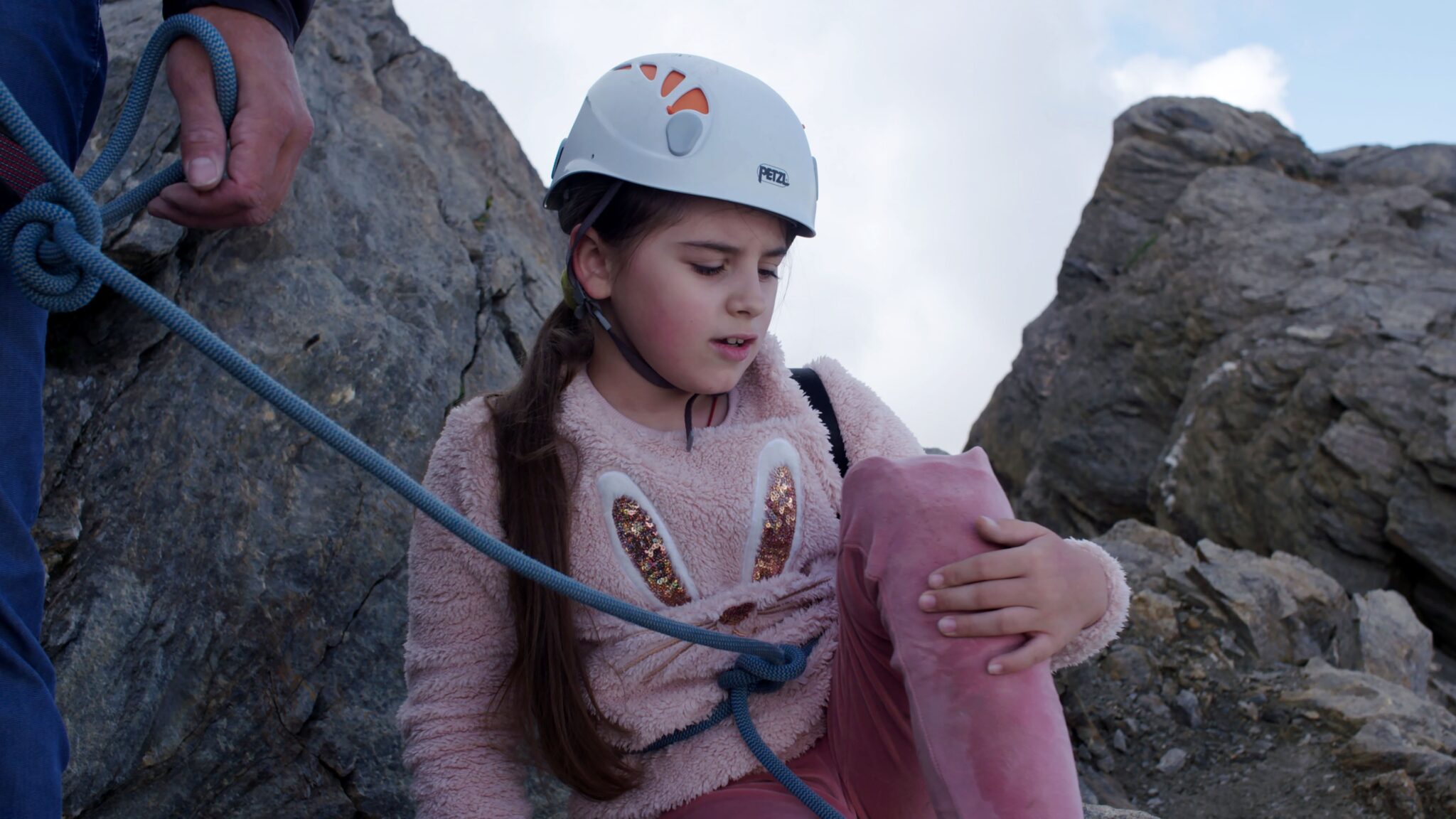It’s important to understand that documentaries are movies, too, in that the camera lies as skillfully as it does in your average blockbuster or low-budget indie. Documentaries can be propaganda tools as much as superhero movies or message movies—especially “inspirational” ones.
Netflix’s Camp Courage is a documentary short that is calculated and so polished that it feels less like a documentary and more like a movie trying to imitate a documentary. Max Lowe fills his scant runtime with perfect images that leave us wondering how Axel Stasny’s camera was always in the right spot, with its two main subjects always perfectly framed. Every shot is perfectly calibrated to deliver the maximized emotional response.

Lowe is too slick, too polished, to allow truth to escape through a relatively simple tale. Had he been more honest or more hands-off, Camp Courage might have been engaging. Instead, it is hollow and shallow as it looks at a mountain climbing camp for Ukranian refugees. These types of camps are not new and have been used for physically and mentally disabled people for years, as well as survivors of traumatic situations.
Camp Courage focuses on Milana, a ten-year-old Ukrainian girl who lost a leg and her mother to a Russian bomb, and her grandmother Olga, who is raising her. Both are suffering the psychological scars of being torn from their homeland and forced to live in Slovakia. The two go to a camp designed for refugees in the Austrian Alps to help heal and strengthen their already solid bond.
The camp was founded by Nathan Schmidt, an Iraqi War vet, who, in a telling interview, reveals that part of the impetus for the camp is an attempt at absolution. To give back what he’s taken away. Schmidt talks briefly about how kids deserve to be kids and that the refugees have had their childhoods ripped away from them. Schmidt tells us he did that to Iraqi children and that it eats him up. However, Lowe refuses to interrogate this further, perhaps due to time constraints. While it’s true, this is hardly representative of who the camp helps, as it is possible this is simply a Ukrainian group, with other groups scheduled at different times. After all, while refugees may share many commonalities, it is hardly a universal experience.
I still couldn’t help but wonder why there was a cross at the top of the mountain the refugees were climbing. If, as Schmidt says, he funded this camp, in part, as penance for his actions during the Iraq invasion, then it would imply that Muslims would visit the camp also, would it not?
Lowe so blatantly puts his hands on the material of Camp Courage because he is so busy steering it toward inspirational moments that he overlooks the genuine emotional drama bubbling between Milana and Olga. Both women are struggling, and Milana is reaching an age where she feels rebellious. But she’s also a scared kid, so she is a powder keg of emotions.

Stasny’s camera follows Milana, watching her work through her own emotions, wrestling with her prosthetic leg. At these times, when Lowe and Sasny merely observe their subjects, Camp Courage becomes somewhat compelling. But far too often, it feels counterfeit as opposed to genuine. Some documentarians can use artificiality to find a kind of ecstatic truth, such as Errol Morris or Werner Herzog. But Lowes isn’t attempting to use artifice to discover truth; he’s trying to substitute the former for the latter.
It’s a pity, too, since he has a subject tailor-made for the time. Had Lowe had more faith in his subject, he might have made a stirring and compelling documentary as opposed to this empty vessel of inspirational porn. People are being torn from their homes, apartheid governments are on the rise, and there are countless Milanas and Olgas in the world, but instead of getting to know either of them, we are given the barest hint of who they are outside of being mere sufferers. They deserve to be recognized as fully actualized people with unique dreams and obstacles instead of making them universal “avatars” of sufferers overcoming obstacles.
Images courtesy of Netflix
Have strong thoughts about this piece you need to share? Or maybe there’s something else on your mind you’re wanting to talk about with fellow Fandomentals? Head on over to our Community server to join in the conversation!

